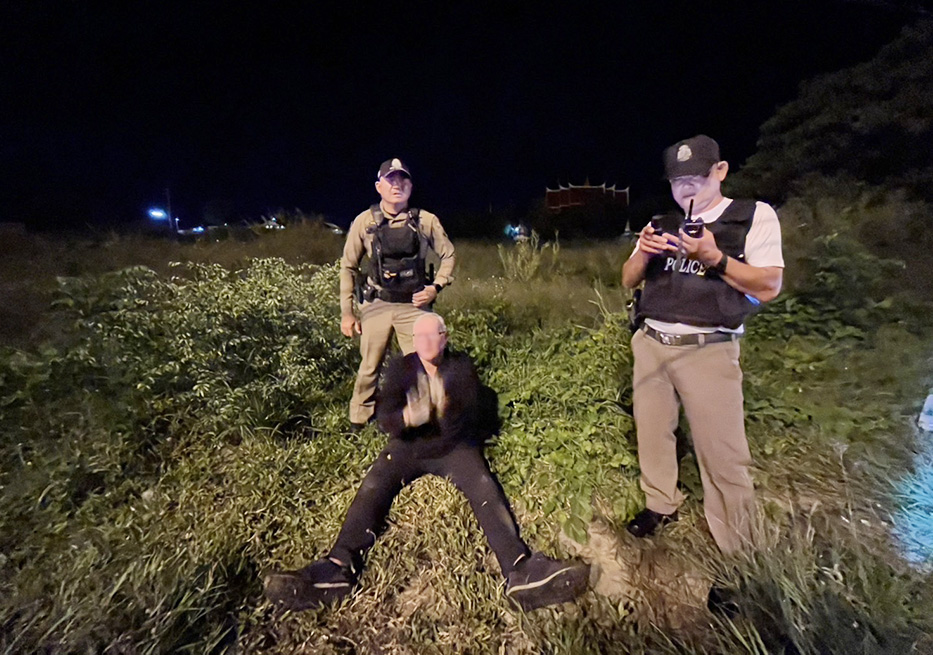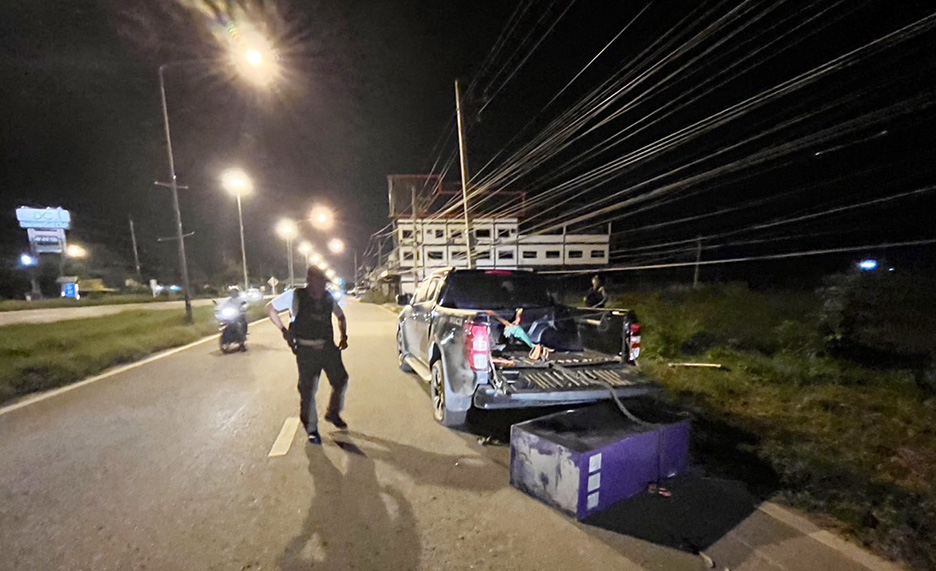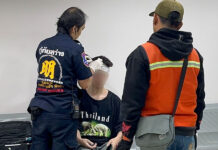
KHON KAEN – Thai police have arrested a 60-year-old Dutch national accused of removing and attempting to steal an entire ATM machine in Khon Kaen early Sunday morning.
Police Arrest in Khon Kaen ATM Theft Case
Police say the suspect, identified only as Mr. S, allegedly dragged the Siam Commercial Bank ATM from its base outside the Sri Sawat store on Maliwan Road in Ban Thum subdistrict. He then loaded the machine onto his black Mazda pickup truck. Drag marks stretched around 20 meters from the ATM site to where the truck was parked.

Officers from Ban Ped Police Station used security camera footage and witness reports to quickly locate and arrest the suspect. Forensic teams later collected fingerprints from both the stolen machine and the pickup truck.
Dispute Linked to Financial Problems
Investigators believe the Khon Kaen ATM theft was linked to a domestic dispute. Mr. S moved to Thailand six years ago and invested about 10 million baht (around USD 270,000) into a restaurant business with his 37-year-old Thai wife, Waraporn, on Prachasamran Road. The couple lived above the restaurant.
Police say the business had been struggling financially, and arguments had become frequent. On Saturday night, another fight broke out. Mr. S reportedly left the house, telling his wife he was going to visit friends in Nong Khai province near the Thai–Laos border. She later told police she was unaware of the theft plan and only learned of the incident when contacted by officers the next morning.
Legal Charges and Possible Sentence
Siam Commercial Bank representatives have filed formal charges. Mr. S faces multiple counts, including nighttime theft, property damage, and using a vehicle in the commission of a crime.
Under Thai law, these charges carry a penalty of one to seven years in prison. Because a vehicle was used, the sentence could be increased by half, meaning a possible maximum of 10.5 years. Fines range from 2,000 to 14,000 baht (USD 55 to USD 380).
Police have denied bail during the ongoing investigation. The court will consider cooperation, criminal history, and other circumstances when deciding the final sentence.





